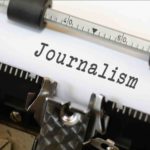Prepare for the SAT by Reading These Books
Reading will not only help you learn about culture, history, and the world around you, but it will also hone other skills, including analysis, critical thinking, and more. In fact, reading is directly applicable to college preparation. When you take the SAT, you’ll have to do a significant amount of reading and writing (as you will throughout your college career, too). How do you tackling this all-important test? One way is to crack open those works of literature. On the SAT, you’ll see passages across a variety of topics and subjects, from literature to history to science. You’ll be required to analyze, contextualize, and interpret passages and their core meanings quickly. For example, you might need to evaluate the shift of a narrative focus or infer why the author has made certain language choices. This, of course, will demand a fair amount of skimming and being able to understand writing without reading every word. While vocabulary is no longer tested, you’ll still need to evaluate complex language in texts from different periods. Reading different works and types of tests will prepare you to tackle nearly every section. Not only will you strengthen your reading comprehension and vocabulary skills, but you’ll also improve your ability to concentrate for hours on end — something you’ll need to do when you sit for the lengthy SAT. For more recommendations for books to read to prepare for the SAT, check out The College Board’s full list. In addition to literature, read resources covering other topics, including science and history. Here are some suggestions: Want to know how your SAT score/ACT score impacts your chances of acceptance to your dream schools? Our free Chancing Engine will not only help you predict your odds, but also let you know how you stack up against other applicants, and which aspects of your profile to improve. Sign up for your free CollegeVine account today to gain access to our Chancing Engine and get a jumpstart on your college strategy!

Why should you read to prepare for the SAT?
20 books to prepare you for the SAT (+ 5 additional resources)
Book
Author
Description
1984
George Orwell
A science-fiction, political satire that will prompt students to draw connections to the present day.
All Quiet on the Western Front
Erich Maria Remarque
A World War I novel dealing with the consequences of war on soldiers’ mental and physical health.
The Catcher in the Rye
J.D. Salinger
A coming-of-age novel dealing with themes of isolation and identity.
The Color Purple
Alice Walker
Spanning 40 years in the life of an African American woman, an epic tale concerning abuse, racism, and sexual violence.
Frankenstein
Mary Shelley
A scientist inadvertently creates a monster in an experiment gone wrong.
The Grapes of Wrath
John Steinbeck
A Pulitzer Prize-winning novel concerning migrant workers in the Great Depression.
Heart of Darkness
Joseph Conrad
Deep themes of European imperialism in Africa pervade this novel.
The Hunchback of Notre Dame
Victor Hugo
Suffering, justice, and love are some of the topics covered in this classic Gothic novel set in Paris in the 15th century.
The Iliad
Homer
An epic poem of the Trojan War, dealing with themes of fate, free will, and honor.
Leaves of Grass
Walt Whitman
Full of symbolism and spirituality, a collection of poetry published in the 19th century
Lord of the Flies
William Golding
A group of boys stranded on a deserted island succumbs to their own dark impulses in this controversial novel.
Macbeth
William Shakespeare
An ambitious couple attempts to pursue power regardless of the cost, fulfilling a fated prophecy.
The Metamorphosis
Franz Kafka
Subject to multiple interpretations, this unique work centers around a man who awakens, having transformed into an insect.
Moby Dick
Herman Melville
Ahab’s quest for revenge consumes him in his journey to settle the score with a whale.
One Hundred Years of Solitude
Gabriel Garcia Marquez
This epic saga chronicles the lives of one family through the ages.
The Picture of Dorian Gray
Oscar Wilde
A provocative novel dealing with mortality and the idea of eternal youth.
Their Eyes Were Watching God
Zora Neale Hurston
A Harlem Renaissance classic narrating the life and trials of a woman coping with poverty and pain in the South.
To Kill a Mockingbird
Harper Lee
Innocence and racism are prominent themes in this much-read Pulitzer Prize-winning bildungsroman.
To the Lighthouse
Virginia Woolf
Using a seemingly mundane setting and event, Woolf explores concepts of gender, death, and family.
The Woman Warrior
Maxine Hong Kingston
A Chinese American woman describes the events and stories that shaped her life.
Resource
Types of articles to read
Description
The New York Times
Editorials, News, Opinion
One of the most trusted news outlets in the country.
Scientific American
Science
A popular science magazine offering well-researched, groundbreaking insights.
The Economist
Science, Technology
Authoritative insights on niche topics, including business, science, and technology.
The Washington Post
Editorials, News, Opinion
Like The New York Times, a major, award-winning newspaper.
National Geographic
Science, History, World Topics
A long-running, popular, science- and world culture-focused magazine.


